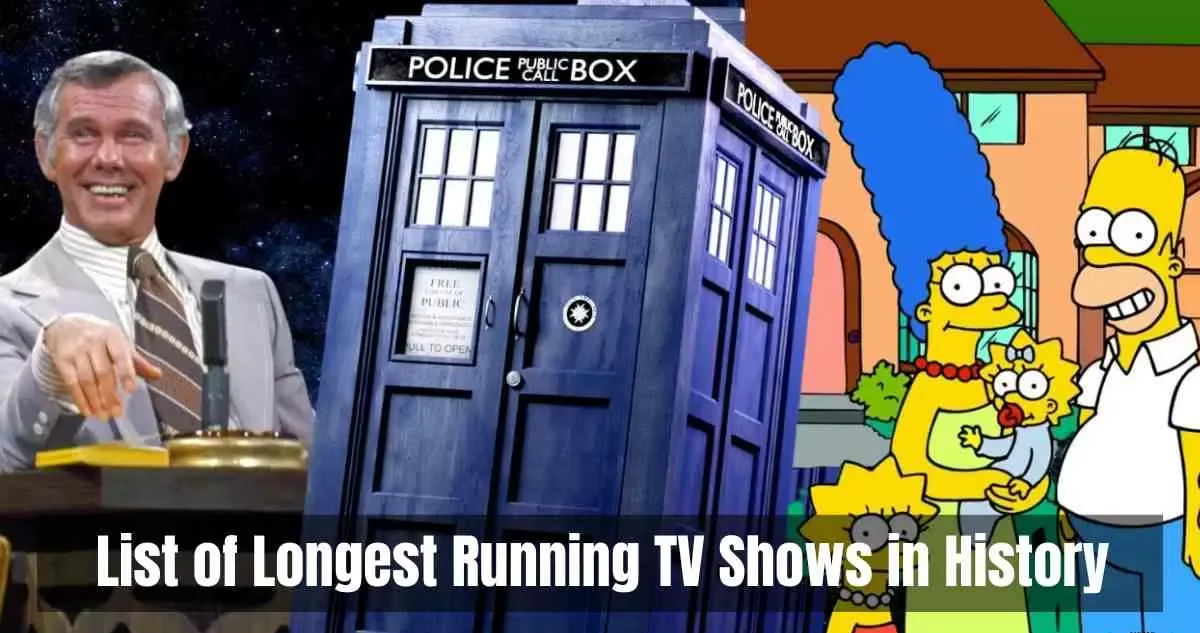Longest Running TV Shows in History
Television has been a dominant force in entertainment for decades. Over the years, several TV shows have stood the test of time, captivating audiences across generations. Some of these shows have been on air for decades, becoming part of cultural history. Here, we look at the longest-running TV shows in history, a testament to their enduring popularity and ability to adapt to changing times.
The Evolution of Long-Running TV Shows
The concept of long-running TV shows has evolved significantly since the advent of television. In the early years, shows typically had short runs, but as the medium matured, so did the commitment of both audiences and producers. Long-running TV shows are often built around a format that allows for ongoing storylines, with episodes that vary but maintain core elements. These shows attract a loyal fan base, which is crucial for their success.
Notable Long-Running TV Shows
Several shows have etched their names into history by lasting decades. One of the most iconic examples is “The Simpsons.” Premiering in 1989, this animated sitcom has become a pop culture phenomenon, remaining relevant for over three decades. Another noteworthy show is “The Today Show,” which has been airing since 1952, making it one of the longest-running morning talk shows. Shows like “Gunsmoke” (1955–1975) and “The Oprah Winfrey Show” (1986–2011) also made significant marks in television history, solidifying their places as long-term staples.
The Impact on Popular Culture
Long-running TV shows have a profound impact on popular culture. They shape societal norms, influence language, and often provide a platform for important discussions. The longevity of these shows reflects their ability to resonate with viewers over extended periods. Whether it’s a family sitcom, a late-night talk show, or a drama series, these shows often reflect societal changes, which helps maintain their relevance and popularity.

Why This News is Important
Understanding the Longevity of TV Shows
The discussion of the longest-running TV shows in history is significant not only from an entertainment perspective but also in terms of understanding television’s role in shaping society. These shows are often more than just sources of entertainment; they are cultural landmarks that reflect the values, concerns, and interests of society at any given time. They highlight the evolution of media consumption patterns and technological advancements in broadcasting.
TV Shows as Cultural Barometers
Long-running TV shows serve as barometers of cultural and societal shifts. For instance, the way shows adapt to changes in audience expectations or societal trends can provide insights into the changing landscape of entertainment. As audiences become more diverse and demand more inclusive representation, these shows evolve to meet these needs. This underscores the importance of understanding the dynamics that keep a show running for several decades.
Historical Context: Background of Long-Running TV Shows
The history of television began in the 1920s, and since then, TV has undergone significant transformations. In the early years, television programming was limited, and shows were often one-time events or short series. However, by the mid-20th century, television networks realized the potential of long-form programming, leading to the rise of weekly TV shows that became staples of prime-time entertainment.
The 1950s saw the birth of some of the first truly long-running shows, with soap operas such as “Guiding Light” (1952–2009) setting the stage for serials that could continue for years. The 1960s and 1970s introduced more sitcoms and dramas that lasted for multiple seasons. The rise of cable television in the 1980s further fueled the growth of long-running series. Shows like “The Simpsons” set new records for animated programming, while “The Oprah Winfrey Show” revolutionized daytime television.
Television’s ability to adapt and evolve with technology, such as the rise of streaming platforms in the 2000s, has also influenced the trajectory of long-running shows. Some of the longest-running series today, such as “The Simpsons,” continue to air through both traditional TV and streaming, ensuring their longevity.
Key Takeaways from Longest Running TV Shows in History
| S.No | Key Takeaway |
|---|---|
| 1 | “The Simpsons” holds the title for the longest-running animated TV show, airing since 1989. |
| 2 | “The Today Show,” airing since 1952, remains one of the longest-running talk shows in history. |
| 3 | Long-running shows reflect societal changes and influence cultural norms, often becoming cultural touchstones. |
| 4 | The ability to adapt to technological and cultural shifts is crucial for the longevity of a TV show. |
| 5 | The 1950s–1970s marked the rise of long-running shows, with soap operas and sitcoms leading the charge. |
Important FAQs for Students from this News
1. What is the longest-running TV show in history?
The longest-running TV show in history is “The Simpsons,” which has been airing since 1989. It is an animated sitcom that continues to be a cultural phenomenon.
2. How does a TV show become long-running?
A TV show becomes long-running through its ability to attract and maintain a loyal audience over an extended period. Factors include consistent quality, cultural relevance, and the ability to adapt to changes in audience preferences and societal trends.
3. What is the significance of long-running TV shows in popular culture?
Long-running TV shows shape societal norms, influence language, and provide a platform for important discussions. They serve as reflections of cultural, social, and political changes, making them significant to popular culture.
4. Which TV show has been airing the longest as a morning talk show?
“The Today Show,” which began in 1952, is one of the longest-running morning talk shows in history. It has been a staple of American television for over six decades.
5. Why do long-running TV shows matter in terms of media and entertainment?
Long-running TV shows offer insights into the evolution of television, the shifting tastes of audiences, and the impact of media on culture. These shows demonstrate the power of television to influence entertainment and society over time.
Some Important Current Affairs Links


















